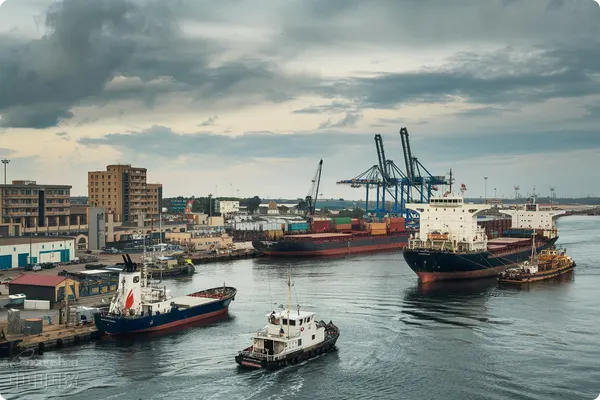- Shanghai Zhongshen International Trade Co., Ltd. - Two decades of trade agency expertise.
- Service Hotline: 139 1787 2118

I. From South Korea to Shanghai: A customs journey of an IC tester
20221February, a batch of precision IC testers from South Korea successfully cleared customs at Shanghai Pudong International Airport. As professionalsImport Representation, we completed the entire process from aircraft landing to client warehouse in just 3 working days. This case typically demonstrates the standard process and key control points for electronic product imports.
As high-value electronic equipment, IC tester imports involve3Ccertification,It is recommended to verify through the following methods:declaration, technical documentation and multiple requirements. We particularly noted that the declared value of this shipment reached $280,000, requiring complete trade contracts, proforma invoices and payment documents for customs valuation. Thanks to complete document preparation in advance, the valuation process was approved in one go.
II. Dissecting the complete import process: 7 key steps are indispensable
Based on our 15 years of operational experience, electronic product imports must strictly follow these processes:
Preliminary document preparation phase
This is the most error-prone stage. We collected and organized 11 categories of essential documents includingAir TransportationBill of Lading, Trade Contract, Proforma Invoice, Packing List, Certificate of Korean Origin, Declaration Elements, 3C Certificate, Product Manual, Ingredient Test Report, Original Label and Chinese Translation. Among these, the 3C Certification (China Compulsory Certification) serves as the "pass" for importing electronic products and requires processing at least two months in advance.
Air freight arrival and declaration
After the goods arrived at Shanghai Pudong Airport via Korean Air flight KE, we immediately initiated the declaration process. Here's a professional tip: utilizing the "pre-arrival declaration" mode, we completed the electronic declaration 24 hours before the cargo's arrival, saving 0.5 working days.
Customs valuation and taxation
These testers were subject to 5% MFN tariff rate and 13% VAT. We prepared complete cost structure analysis in advance to prove the reasonableness of declared value, avoiding delays caused by valuation disputes.
Inspection response strategy
Customs implements approximately 20% inspection rate for such high-value electronic products. We prepared product demonstration videos and technical parameter comparison tables in advance, compressing the original 3-week inspection cycle to 10 working days.
III. Four Core Values of Professional Agency
Through this case, the irreplaceability of professional import agency becomes clearly visible:
Policy Interpretation Capability
We promptly grasped the changes in the 2022 revised Administrative Measures for the Control of Pollution Caused by Electronic Information Products to ensure products comply with China RoHS requirements. Meanwhile, we utilized the preferential rules of origin under the China-Korea FTA to save clients 2.6% in tariffs.
Agency for UN packaging certification of hazardous chemical parts (such as airbags)
Establish a "Three-Level Document Review" mechanism: initial review by sales staff, secondary review by customs clearance managers, and final review by the risk control director, ensuring 100% accuracy across 11 types of documents. Maintained a zero rejection record over the past 5 years.
Emergency Handling Experience
We once encountered a customs request to supplement the "Integrated Circuit Testing Method Description." Within two hours, we contacted the Korean manufacturer to obtain the technical documentation in both Chinese and English, thereby avoiding storage fees due to cargo detention.
Nationwide Service Network
Maintains permanent customs clearance teams at Shanghai Airport with VIP channels established with customs, airport, and cargo terminals. Also registered at all major ports nationwide for multi-point clearance capability.
IV. Three Practical Recommendations for Importing Enterprises
Based on this case, we recommend electronics importers:
Plan Certification Matters in Advance
CCC certification typically requires 45-60 days, so sufficient lead time must be allocated. Some testing equipment may involve off-catalog confirmation, so pre-classification rulings are recommended.
Emphasize Technical Documentation Management
English manuals provided by Korean manufacturers often fail to meet Chinese customs requirements. Recommend stipulating bilingual documentation delivery obligations in contracts.
Choose Agents with Electronics Category Experience
General freight forwarders may not understand the special regulatory requirements of HS code 8543.7090, whereas professional agents are familiar with electronics-specific clearance points.
This cases success not only demonstrates the service value of professional agency but also highlights how standardized operations decisively impact clearance efficiency. With RCEP implementation, China-Korea electronics trade will increase, making professional import clearance skills a core corporate competency.
Related Recommendations
Contact Form
? 2025. All Rights Reserved. Shanghai ICP No. 2023007705-2  PSB Record: Shanghai No.31011502009912
PSB Record: Shanghai No.31011502009912










